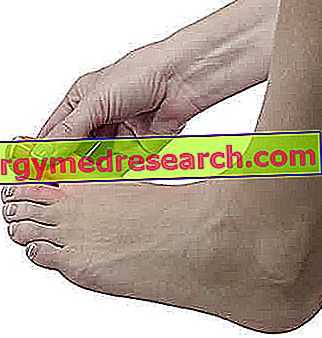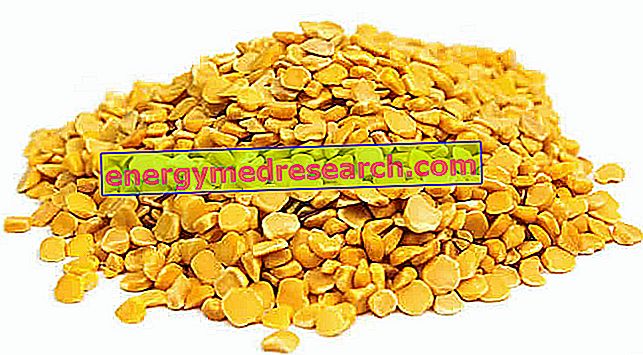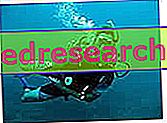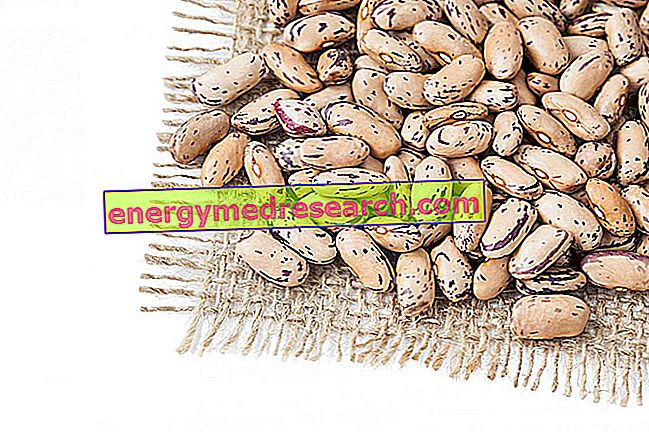Gout is a metabolic disease.
It manifests itself with the accumulation of uric acid in crystals and with the relative localized inflammation (tophi); the most painful ones are found in the joints.

To be sure, gout is the acute form of the primary disorder that leads to excess urate in the blood (hyperuricemia).
The causes can be two:
- Wrong endogenous purine synthesis and uric acid overproduction.
- Insufficient urinary excretion of uric acid.
Uric acid plays a toxic role in the kidneys and, among the various sites of accumulation, is frequently deposited in the joints.
In summary, hyperuricemia causes gouty attacks that can occur with:
- Tofi.
- Mono-articular gouty arthritis, with cartilage deposits.
- Gouty nephropathy.
Gout affects only those who are genetically predisposed (about 0.3% of the total); it affects almost only males and starts between 30 and 50 years old.
What to do
- Having the doubt to suffer from gout (for the familiarity of the pathology or for having already suffered from joint pains and tophi) it is necessary to immediately contact the doctor.
- He will prescribe a specific visit or he will independently start the diagnostic course of hyperuricemia:
- Follow a hypopuric diet for at least 5 days.
- Exemption from drugs that can affect uricemia.
- Blood test for evaluation of uric acid accumulation.
- Evaluation of the outcome of the haematological analysis, which will be positive in the case of:
- 7mg / dl in humans.
- 6.5mg / dl in women.
- If the amount of the charge is over 9mg / dl and is independent of other causes, the doctor will prescribe:
- Specific drugs against hyperuricemia (which facilitate disposal and reduce endogenous synthesis).
- Hypopuric diet rich in water.
- List of drugs and supplements to avoid.
- Vitamin C or ascorbic acid supplements: it seems they can improve the gouty condition.
When a gouty single-joint arthritic attack occurs, it is necessary:
- Immobilize the affected joint, put it to rest and uncover it.
- Under medical prescription, take specific and anti-inflammatory drugs.
In the doubt that other joint comorbidities may exist, it may be useful to exploit a specific diagnostic technique:
- Arthrocentesis: it is useful for the diagnosis of joint diseases. It is based on the collection and analysis of a sample of synovial fluid contained in the joint capsule.
What NOT to do
In the case of a positive diagnosis for gout, it is inadvisable:
- Abusing alcohol.
- Being or becoming sedentary.
- Use or abuse certain drugs and supplements:
- Salicylates.
- Diuretics (despite increased renal filtration should reduce blood uric acid levels).
- Vitamin PP or niacin.
- Use cortisone injection as a long-term therapy.
- Follow a diet rich in purines.
- Drink little.
In case of acute attack of gouty arthritis:
- Wait for it to pass spontaneously.
- Insist on negative conduits for gout.
- Load on the affected joint.
What to eat
Foods with low purine content (from 0 to 50mg / 100g):
- Milk, eggs, cheese, vegetables, vegetables (except those listed below), fruit, pasta and other cereals (except wheat germ and whole grain products).
Only in the presence of specific drug therapy, even foods with a medium purine content (from 50 to 150mg / 100g):
- White and red meats, some fish (except those listed below), oysters, prawns, crabs, crustaceans, cold cuts and sausages in general; peas, beans, lentils, asparagus, spinach, cauliflower, mushrooms, peanuts, wholegrain products.
- It is necessary to remember that a diet rich in complex carbohydrates is related to the elimination of uric acid.
- Furthermore, the accumulation of uric acid can be combated with a diet rich in water and hydrated foods. The increase in renal filtration prevents stones and favors the lowering of uricemia.
- Some argue that increasing the proportion of omega 3 (essential) fatty acids can reduce the general inflammatory state even in the case of gout. Unfortunately, the foods that contain the most are blue fish (which, as we will see, contain many purines). The advice is to use a purified supplement or to increase the intake of foods with omega 3 but with few purines: other fishery products, algae, certain oil seeds and related oils.
What NOT to Eat
- Spirits: wine, beer, spirits, liqueurs etc.
Foods with high purine content (from 150 to 50mg / 800g):
- Anchovies or anchovies, sardines, herring, mackerel, mussels, sweetbreads, liver, kidney, brain, meat extract, game.
- It should also be kept in mind that a diet rich in fat and fructose is correlated with the retention of uric acid.
Natural Cures and Remedies
There are two types of natural remedies for gout:
- Supplements:
- Vitamin B6 or pyridoxine.
- Magnesium.
- Omega 3.
- Herbal, in the form of an infusion, decoction or extract to be taken orally:
- Winter Cherry.
- Birch.
- Artichoke.
- Blessed thistle.
- Butcher's Broom.
- White willow.
- Java tea.
- Pilosella.
- Nettle.
Pharmacological care
- Gout treatment is based on the control of uric acid metabolism; therapy with the following drugs should not be initiated during an acute gout attack:
- Colchicine: analgesic, anti-inflammatory and promotes the excretion of uric acid. For example Colchicina LIRICA and Colchicina FN.
- Allopurinol: inhibits the endogenous synthesis of uric acid. For example Zyloric, Allurit and Allopurinol FN.
- Febuxosat: inhibits the endogenous synthesis of uric acid. For example Adenuric.
- Probenecid: promotes the elimination of uric acid. For example Probenec FN.
- Sulfinpirazone: promotes the elimination of uric acid. For example Enturen
- When an articular gout attack occurs, it is advisable to take:
- Non-Steroidal Anti-Inflammatory Drugs (NSAIDs): to combat inflammation (salicylic acid and its derivatives, as well as cortisones) are absolutely contraindicated:
- Diclofenac: for example Fastum Painkiller and Dicloreum.
- Ketoprofen: for example Fastum, Ketoprofen, ALM and Steofen.
- Naproxen: for example Naprosyn, Prexan and Naprius.
- Piroxicam: for example Feldene, Piroxicam EG and Artroxicam.
- In case of allergy to NSAIDs or reduced tolerance it is possible to resort to some corticosteroids (also injectable in the joints).
Prevention
- The first preventive intervention against gout is to perform diagnostic investigations. Obviously, this applies especially to:
- Who could be familiar with hyperuricemia.
- Who suffered at least once from gouty symptoms.
- For those who have already had a positive diagnosis of hyperuricemia, it is essential:
- Respect drug therapy.
- Being or becoming normal weight.
- Being or becoming physically active and playing sports.
- Drink a lot.
- Consume foods with low or medium purine content avoiding the richer ones.
- Avoid alcohol.
- Avoid medications and supplements that can aggravate uric acid metabolism.
Medical Treatments
The treatment of gout is generally pharmacological and does not require alternative medical treatments.



